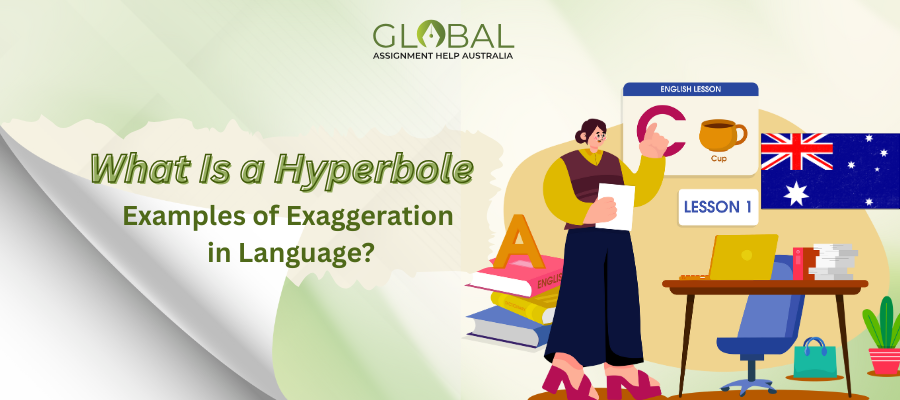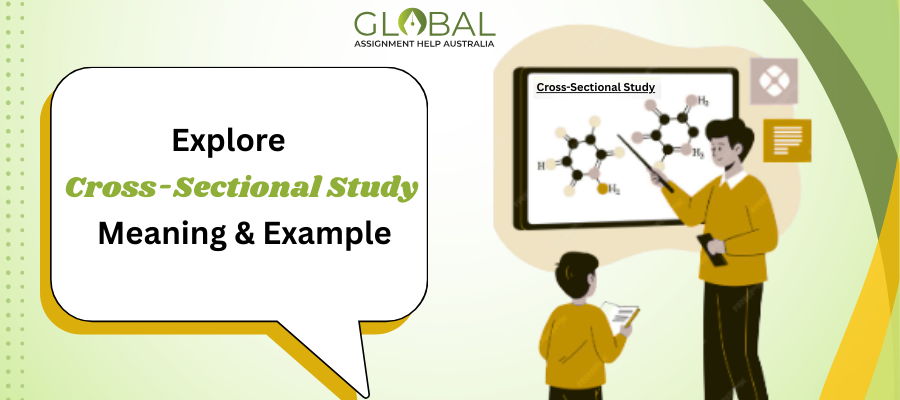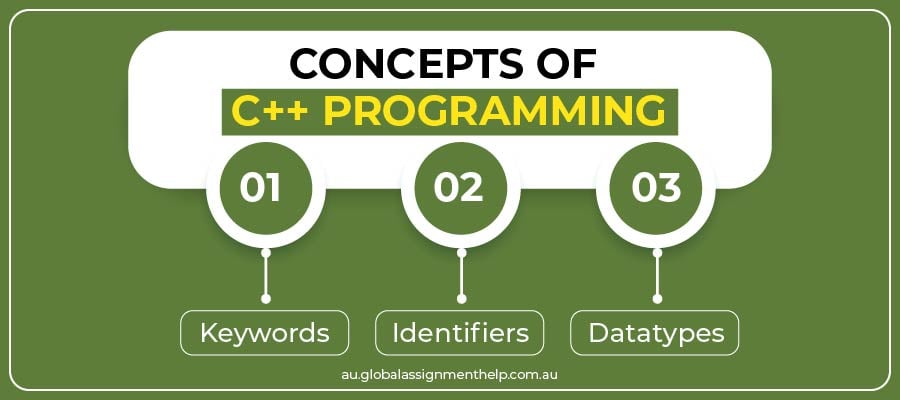 Offers
New
Order Now
Offers
New
Order Now
The C++ programming language is one of the most important aspects of the coding era. Why? It's highly useful in developing websites, applications, software, and games. This language seems typical and challenging for many students. But honestly, it is not! Every scholar, whether he is in computer science, engineering, or any field, can learn C++. All they need to do is keep their basics strong and clear. Thus, to sharpen this game, the experts at Global Assignment Help Australia will explain the programming concepts of C++. So, continue reading further and do not forget to take notes.
C++ programming was developed in 1983 by Bjarne Stroustrup at Bell Labs. It was created as an extension of the C language. The best thing about C++ is that it's object-oriented. Thus, it supports the three programming styles, namely generic, procedural, and functional. Let us have a look at the key features of this language.
Thus, C++ is a widely popular language used to create several types of applications and websites. Students can easily learn it by grasping a thorough knowledge of basic programming concepts. The first step to knowing C++ is understanding its syntax. So let us look at the easy explanation given by our experts.
Get Programming Assignment Help OnlineThe syntax is the set of instructions that helps the user write programs. In simple words, it is a structure that should be followed by every student if they want to produce a successful code. Just like other languages, it also comprises already-defined instructions. Students do not understand the syntax, as it can be confusing. So, when they are assigned tasks by the professor, they look for C++ programming homework help. If you are a student who is confused too, do not worry, as we will explain the syntax step by step using a sample code.
|
// This Is a Sample C Program #include <iostream> using namespace std; int main () { int a = 6; int b = 8; int sum= a +b; cout << sum<< endl; return 0; } Output 14 |
Using the above C++ programming examples, we will explain the syntax line-by-line.
It instructs the processor to do something before the actual program starts. In the above sample program, our user directs the C++ compiler to include the iostream header file for this code. The <iostream> includes functions like cin and cout. Without these, you cannot ask for input and output in your program.
Syntax to include header files: #include <library_name>
A namespace is the area or scope where the user defines the identifiers. Each identifier should comprise a unique name and must avoid repetition. In our sample program, we have used the standard namespace to showcase that all the standard library functions are used in this program.
Syntax to include namespace: using namespace std;
A function in C++ is a block or small section of a program that is defined to perform specific tasks. It includes instructions, variables, keywords, data types, parameters, and information about its return types. The C++ programming examples written above include the main (). It is one of the most important blocks of any code, and the runtime starts with this function.
Syntax to include the main function:
data_type main ()
{
}
The block of the C++ programming language is a set of instructions and statements included in the curly brackets {}. They include identifiers, bodies of functions, and control statements. The blocks help a user produce a lengthy code into small logical sections.
Syntax for the blocks:
{
// body or any instructions defined by the user.
}
Buy Our Academic Writing Services and Get Quick Help from Our Experts to Fetch HD Grades.
The compiler of C and C++ does not understand the English language's full stop. So, to explain that a statement has ended, users use semicolons. With this symbol, the compiler understands this instruction has been executed and it can jump on to the next line.
Syntax: any_instruction ;
Identifiers are the words that are used to name variables, functions, and user-defined data types. It can include a set of uppercase and lowercase alphabets and underscores for spaces and digits. However, the identifier should always start with an English letter and never use a number or symbol. Our C++ programming examples comprise a, b, and sum identifiers of integer data types.
Syntax to include identifiers: data_type name;
data_type name = value;
In the above program, we have included user-defined words that provide a special meaning to the C++ compiler. These are keywords, and they are library-defined. In our sample program, we have used int to direct that a and b identifiers are of integer type and cannot contain alphabets, decimals, or symbols.
Syntax to include keywords: keyword_name identifier_name;
The C++ programming language comprises certain words that help the user to either scan inputs or print outputs. In our above program, we have used cout, which helps in printing values. It is an object of the <iostream> and cannot function without including the same header file at the start of the code.
cout << variable_name ;
The above syntax is easy to understand as it only comprises the basic programming concepts. In your initial days of learning, teachers will assign you academic tasks on the above topic. But now you do not need to worry, as our experts have already explained the syntax. Still, if you face any issues, feel free to seek homework help from us. Until then, let us move ahead and bring more clarity to the keywords and identifiers in C++.
We have discussed what keywords and identifiers are in the above syntax, but that is just a small hint to a big story. Learning C++ programming language, you should have an in-depth knowledge of these library-defined and user-defined words. So, let us equip you with it!
Keywords, also known as built-in, reserved, or library-defined words, have a special meaning to the compiler. We know that C++ is an extension of the existing C language. Thus, most of its keywords are applicable while programming in C++, with their meaning unchanged. A variable or any identifier cannot have the same name as a keyword. Moreover, in this language, we have over 95 reserved words, and the popular ones are listed below.
|
1. auto 2. break 3. case 4. char 5. const 6. continue 7. default 8. do 9. double 10. else 11. enum |
12. extern 13. float 14. for 15. goto 16. if 17. int 18. long 19. register 20. return 21. short 22. signed |
23. sizeof 24. static 25. struct 26. switch 27. typedef 28. union 29. unsigned 30. void 31. volatile 32. while |
Identifiers are all the user-defined words in C++ programming. It could be the name of a variable, array, class, object, function, and more. The programmers can create them by following some simple rules. For instance, the name of any identifier should start with an alphabet and never a number or special character. Moreover, it should never contain any space, and if needed, the programmer can use the underscore (_). Lastly, while naming the identifier, keep in mind that the uppercase and lowercase letters are considered different in C++. Now, let us look at a few C++ programming examples of identifiers to understand their concepts clearly.
|
Invalid Identifiers in C++ Programming |
Valid Identifiers in C++ Programming |
|
1sum |
sum |
|
*up and above |
up_and_above |
Yes, we know that learning C++ programming language is difficult, especially when there are so many concepts. But do not worry, as we will explain each aspect in detail. So let us move ahead and talk about the data types supported in it.
Every variable has a data type, which helps the compiler understand which type of data is stored in a particular identifier. To learn the C++ programming language, you should be well-versed in its variety of data types. Each of these comprises a specific size, and a variable can only contain values until the limit of the data size is exhausted. For better clarity, let us understand its types one by one.
The data types in C and C++ are almost the same. In this section, we will be unravelling them one by one. But if you still have any doubts, you can seek C++ or C programming assignment help from our experts. Until then, let us move ahead!
These data types are predefined by the compiler, and the programmer can use them directly whenever they want. In C++, the user can also declare them during runtime. Let us look at some examples.
These are also known as primitive data types and are developed from built-in words. The users of the C++ programming language can use them to perform specific tasks in the code. A few examples of derived data types are given below.
Commonly known as abstract data types, they are user-based. It means that the programmer can define, use, and destroy them as per their requirements. In the C++ programming language, we commonly use four types of abstract data types, which are given below.
The data type in C++ can be user-defined, derived, or built-in. To understand its programming concepts in detail, students should read and write sample codes. They should also re-read the data type, keywords, and identifiers again. If at any moment they feel stuck, scholars can reach out to our assignment help experts. Yes, we have a team of C++ programmers who are well-versed in every aspect of the language. So, these professionals can help you out at any point of the day with anything. All you need is to ask for programming assistance. Do not believe us? Check out the section below.
Global Assignment Help is a leading academic platform that is assisting thousands of students in Australia by reducing their academic burnout. We have a team of PhD writers and researchers who can guide students in any subject or topic. So, yes, these professionals can provide C, C++, and Javascript assignment help, all at affordable rates.
If you are a student who is struggling to complete their academic tasks, then we can be your best choice. Our team can assist you in every step, starting from topic selection, researching, drafting, and referencing to the final editing. Not only this, we can aid you in completing all types of academic submissions, whether they are essays, assignments, or C++ programming language homework.
At Global Assignment Help Australia, students can seek affordable assistance by applying for exciting discounts and offers. Not only this, but everyone can use our free tools and services to reduce their academic burnout. Moreover, our experts will guide you and resolve your queries regarding the C++ programming language. So, what are you waiting for? Get help now!
You may also like to read:-

Grab this exclusive offer and start your journey to savings today! Act quickly, as this special offer won't be around for long!

This blog explains what is a hyperbole, provides engaging examples, & explores how to use hyperbole.

Explore 150+ funny debate topics to spark laughter, creativity, and lively discussions in 2025

Cross-Sectional Study basics explained with steps, examples, and comparisons.
Limited Time Offer
Exclusive Library Membership + FREE Wallet Balance
1 Month Access !
5000 Student Samples
+10,000 Answers by Experts
Get $300 Now
Update your Number

